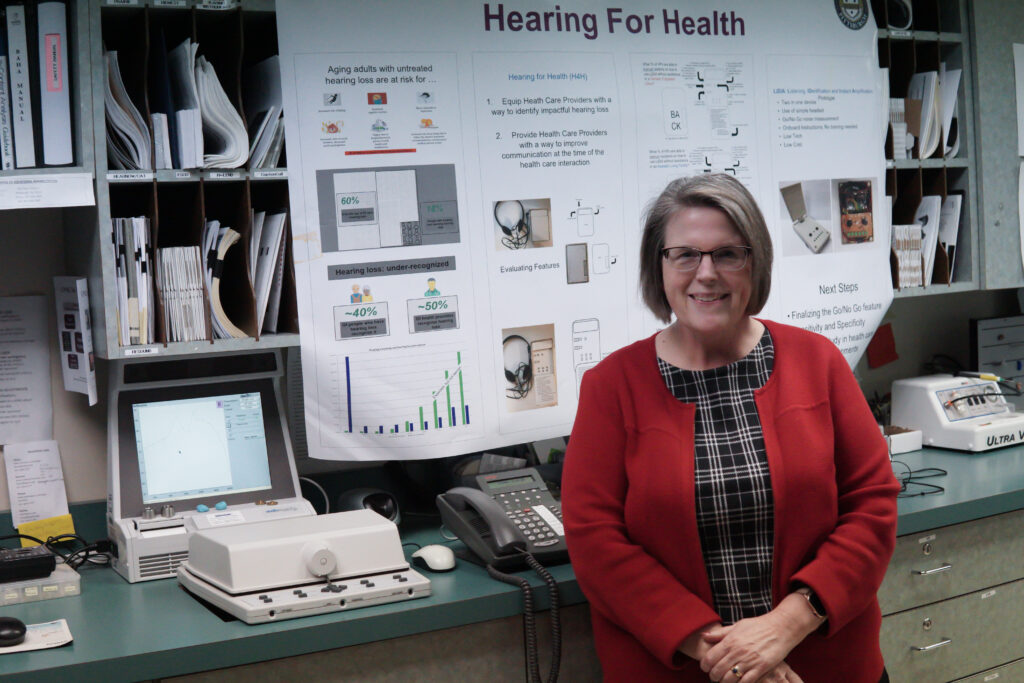S+S Spring 2023
To meet the critical need for a reliable performance standard for amplification technology independent of industry claims, the Hearing SUPPORT project was created. It will now become a reality, thanks to a $100,000 grant
from the Hearst Foundation to the Eye & Ear Foundation and the Department of Audiology at the University of Pittsburgh.
As stated in the proposal, “New hearing technologies enter the market every 3-6 months, and a large influx of hearing devices are expected in the next 1-5 years given the emergence of over-the-counter hearing aids. This timing mandates a fast and effective test protocol that can be accomplished in a neutral laboratory setting in an ongoing manner that produces data that is also immediately accessible to multiple stakeholders.”
Hearing SUPPORT stands for Scale of Usability, Performance, and Participation for Optimizing Real-World Technology. The project has four stages, the first being Exploration and Discovery. This will involve a literary review and focus groups to identify what individuals want from amplification. Next is Intervention Development, in which research will create a laboratory test battery that predicts real-world performance on functions important to consumers. Intervention Effectiveness will test devices with real people with the test battery. Data will be used to create a dashboard of real world situations to help consumers, families, audiologists, healthcare providers, insurers, and device developers make informed decisions. Last is Scale-Up, to test if the data is being accessed by different groups and if
the information is understood and acted on by consumers.
The project started on April 1, 2023, when the team met to map out the year. A new research audiologist joined the team on this date as well. Dr. James Katz has over 30 years of experience in the hearing aid industry and in audiology, which makes him a perfect match for the project, said Catherine V. Palmer, PhD, Professor and Interim Chair, Department of Communication Science and Disorders, University of Pittsburgh, Professor, Department of Otolaryngology, and UPMC Director of Audiology.
“A critical, exciting part of this project is our ability to team up with our Health Information Management (HIM) colleagues in the School of Health and Rehabilitation Sciences,” Dr. Palmer said. “We will work closely with them
to take the data we generate to turn it into usable, accessible information that will be in a consumer dashboard accessible through the Internet. This is a key component of the project, to create meaningful information for consumers as opposed to the traditional technical specifications that are reported and do not help consumers make individual decisions based on their communication needs and lifestyle.”
Dr. Palmer is excited to have the resources and support to move forward with this project that will assist consumers and audiologists in navigating what is becoming “an ever more confusing array of products related to hearing health care.”
